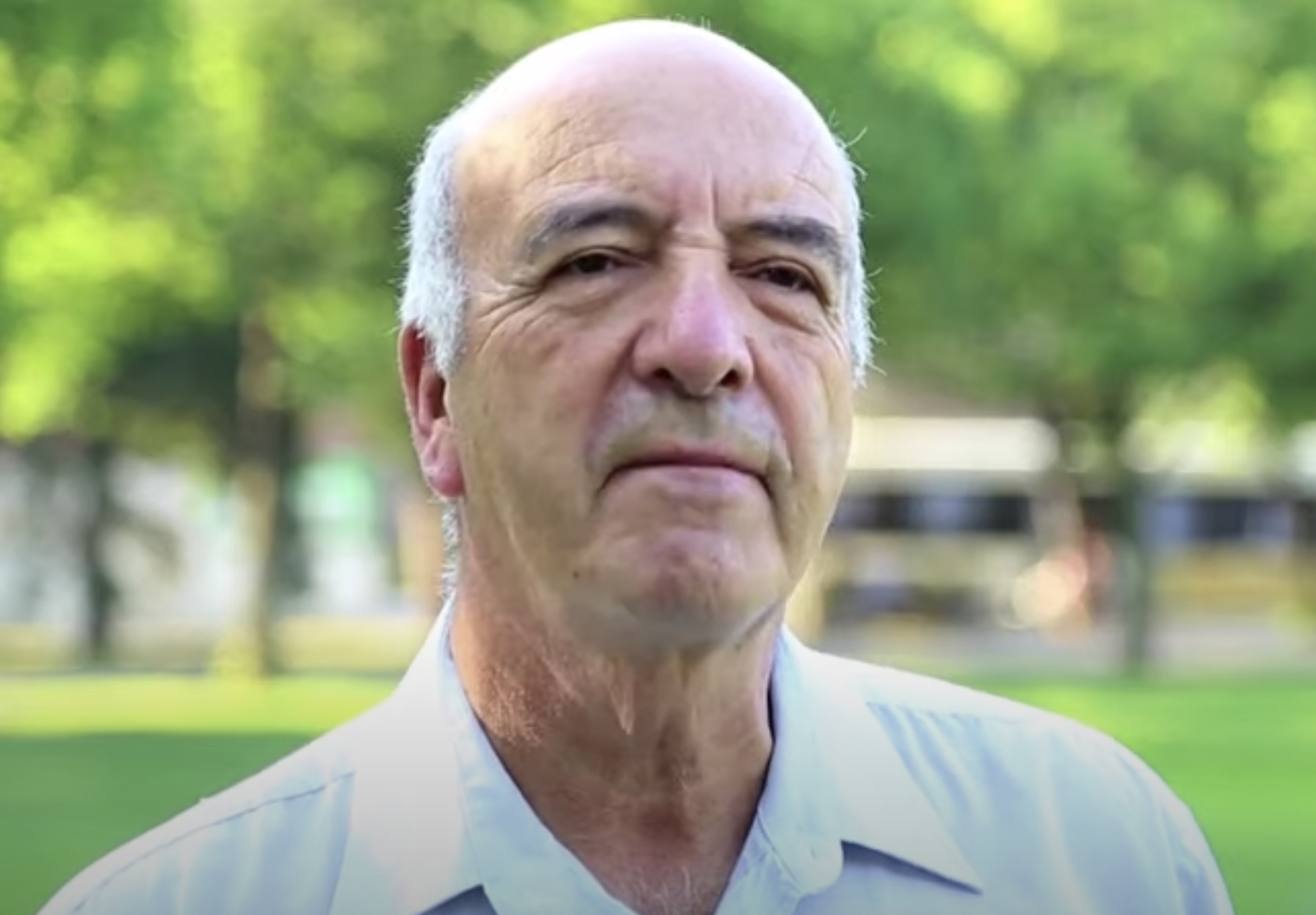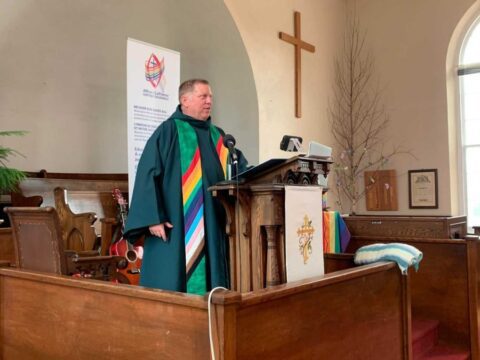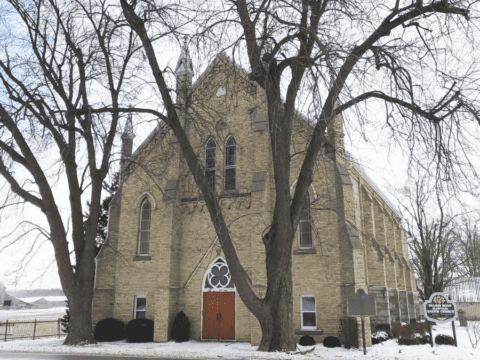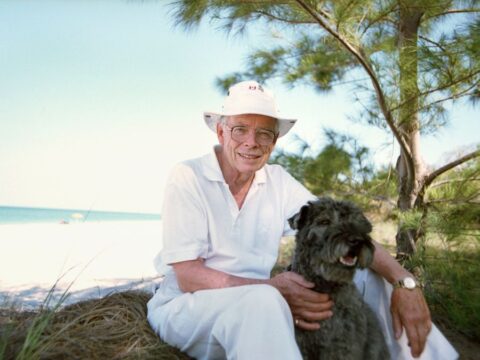The Kamloops and Cowessess discoveries are confirmation of the costs of a determination by the society to make Indigenous peoples Canadian. The mission is called “civilizing,” but it is cultural genocide. The foundational attitude is that we are to be pitied for who we are and the only solution is to make us “fit in.” Some churches have apologized and the Canadian government has expressed regret for its involvement in residential schools. At best, the statements have acknowledged historic mistakes but deep racism has continued.
We are given charity instead of justice. We face batteries of government lawyers when we attempt to raise the spirit and intent of our treaties. Our poverty is entrenched in government policies that are designed to maintain the status quo. The jails are crowded with Indigenous youth and our children are in the web of provincially controlled child and family services.
You may unsubscribe from any of our newsletters at any time.
The United Church apologized in 1986 for its role in colonialism and the words rang out to us announcing a new era of liberation from colonial captivity. Thirty-five years later, there are continuing efforts by churches to find a path to reconciliation. The language that is used is changing but the institution resists transformation. The reality is that Indigenous peoples are colonized. We live with trauma and generations of marginalization have caused us to question our teachings.
More on Broadview:
- 4 questions Christians need to ask if we’re to make good on reconciliation
- Residential school survivor wants Catholic Church to pay millions originally promised
- How United churches mourned the Kamloops residential school victims
Alberta Billy was a member of the National Native Ministries Council in 1985 when she asked the General Council Executive for an apology. She was concerned about the effect that the United Church’s disrespectful colonial missionary actions were having on Indigenous peoples. Members of the National Council and many others did educational workshops with congregations and at United Church gatherings long before the word reconciliation was used in describing the work of building right relations. The United Church of Canada (UCC) apologized in 1998 for its involvement in residential schools. This apology led the churches into a long process with Canada that eventually led to the formation of the Truth and Reconciliation Commission.
The apologies made by the UCC did not have a significant impact on people in the pews. In my opinion, it was because there was no strategic planning about what was to be done in light of this history of cultural genocide. The church courts did not refer to the apologies in their vision statements and congregations did not engage in the task of transformation that was implied in the apologies. Even after the Truth and Reconciliation Commission Calls to Action, there are United Church congregations that do not comprehend what this has to do with them.
It is likely that there will be many more graves discovered in days to come. I am prepared to continue the work of healing in our society and in the United Church.
The Creator has work for us and I am reminded of a chorus taught to me in Sunday School 70 years ago:
Jesus loves the little children
All the children of the world
Red and yellow, black and white
***
The Very Rev. Stan McKay was the moderator of The United Church of Canada from 1992 to 1994. He lives in Fisher River, Man.
Emotional support or assistance for those who are affected by the residential school system can be found at Indian Residential School Survivors Society toll-free 1 (800) 721-0066 or 24 hr Crisis Line 1 (866) 925-4419.














One of the difficulties, as I see it, is the attitude of Christians that “our religion, our way of believing in God, is the right way and everyone else in the world should believe as we do.” Isn’t that why the Christian church sent forth missionaries to convert the “heathens” to Christianity?”
In my view, I wonder how it would be to recognize the lifestyle and spiritual practice of indigenous people if that attitude were prevalent with folks in the pews. We must recognize that we, as Christians, are just one of many religions and within our own way of worshipping and believing we are also fragmented. Why can’t we have a country where we all respect one another as “people.” Each person should have a right to their own spiritual path and lifestyle. We can’t make others be like us. When will we recognize that? We can quote scripture all we like but scripture was written by human beings. We have to recognize that God sets before us different paths and ways of being and we must respect that and we must respect those whose paths are different from ours.
Where do wars and fights come from among you? Do they not come from your desires for pleasure that war in your members? You lust and do not have. You murder and covet and cannot obtain. (James 4)
The Dutch, French and English dominated the “new world” for desires and covetousness. Now we as a new entity called Canada pay for their sins. (Not suggesting we are perfect)
We need to realize two things – not all who claim to be “Christian” are. And, Christians are not perfect, just forgiven.
Your point is well taken – Each person should have a right to their own spiritual path and lifestyle. We can’t make others be like us. BUT – Our mandate as Christians is to preach the gospel to save lost souls. The problem as Christians is we tend to try to force others, rather than to “point” others to Christ.
Your view on Biblical text is flawed, and as much as the United Church states it recogonizes the Bible as God’s inerrant Word. It no longer does.
It suggests that it is a book of moral stories or as you suggest a compilation of antiquated “man-made” rules.
Christ was God and He stated “I AM the Way, the Truth and the Life.” There is no getting around that, and “Every knee shall bow and every tongue confess that Jesus Christ is Lord.”
Ahh Gary, it’s an attitude such as yours that started this mess to begin with. Our Christian faith is but one of many and each person feels that theirs is somehow the right one. Nobody has it all right. We can only glean some pieces of what we think, feel or imagine what may be some spiritual answers. I respect your opinion, however in seminary I was taught to think critically and since retiring I have had the luxury of delving into many sources of Christian theology so I respectfully disagree with you. To quote yourself, “Christians are not perfect, just forgiven.” Seems rather arrogant to me.
It would be more arrogant if I had said
“Christians are perfect”
All sin and fall short of the Glory of God.
If we say that we have no sin, we are deceiving ourselves and the truth is not in us.
By faith we eagerly await through the Spirit the righteousness for which we hope.
Forgetting what is behind and straining toward what is ahead, I press on toward the goal to win the prize for which God has called me heavenward in Christ Jesus.
And I am sure of this, that he who began a good work in you will bring it to completion at the day of Jesus Christ.
Do you not have your own mind with which to think about these things? God, however we understand God, gave us a brain with which to think.
basically, we apologize for overreacting, but you’re still a problem. And, we’re sorry…..my culture seems incapable of self analysis, self discovery, which is ironic given our pension for selfish interest.
I really appreciated Stan’s article. I respect his perspective. and, unfortunately it rings true. Much more work is required.